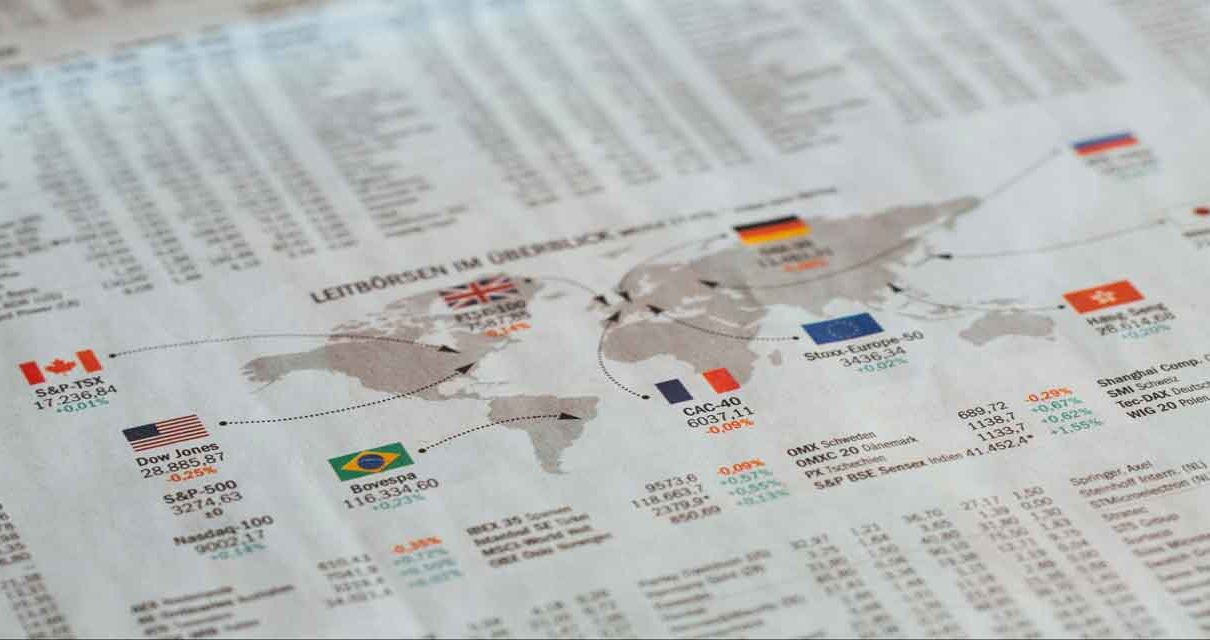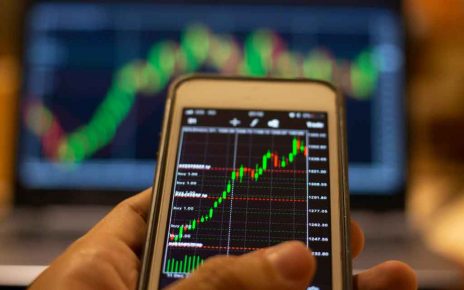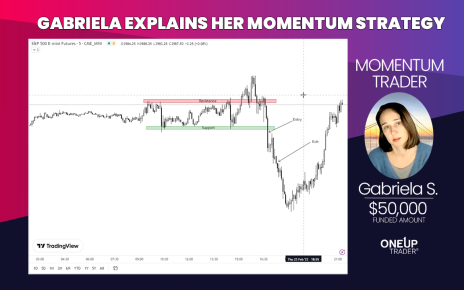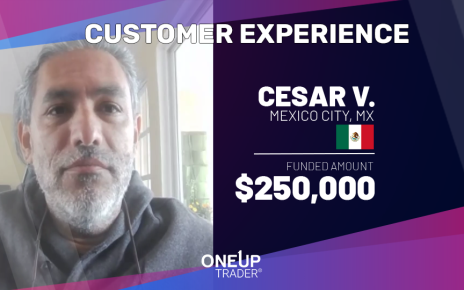Just a few years ago, if you wanted to test your skills (and your luck) as a trader, you needed to be physically present at one of several brick-and-mortar financial centers – the New York Mercantile Exchange (NYMEX), the Intercontinental Exchange (ICE), the Tokyo Commodities Exchange (TOCOM), to name but a few.
Today, you can easily trade futures from the comfort of your home with the help of feature-rich electronic trading platforms and channels. Wherever you are, whatever your business is, there are no limitations on how and when you can trade.
While this brings unprecedented convenience, it also brings a problem or two. Namely, you can easily be tempted to start trading futures without understanding what they are, how they work, and what the mechanisms behind them are. And that, my friend, is a recipe for many financial troubles.
To become a successful trader and improve your margins, you need to get down to basics and familiarize yourself with a trading platform, find out how you can join it, and how you can make it work for you, and use it to your advantage.
So, without further ado, let’s learn the essentials of the futures exchange.
What is a futures exchange?
A futures contracts exchange, also known as a futures market, is a centralized marketplace where you can buy and sell futures of any kind – index futures and options on futures, also commodity futures, and more, daily.
Since futures are unique contracts, allowing traders to buy/sell a commodity on a future date at a predetermined price, they come with certain risks – how can you ensure that all the parties will respect the terms of the futures contracts? You can’t, not without a regulated futures exchange that works as, or with a clearing house, at least.
Futures exchanges act as a middleman between buyers and sellers. The exchange standardizes the process of trading, setting clear rules, and ensuring a safe trading space where all parties involved are obliged to honor the terms of their contracts. It offers transparency and stability, regulating futures contracts for the benefit and security of all buyers and sellers.
To participate in the marketplace, you need to become a member of the exchange, either as a broker or as a commercial trader. Otherwise, you’ll need to have an account with a registered broker to join the market.
Futures exchanges can be both for- and non-profit organizations. The formed kind collects a profit from fees on trading and clearing services, while the latter will have its members earn commission as brokers or market makers.
Regardless of the type of the exchange, however, it needs to be regulated by the relevant national authority. In the US, futures exchanges and any electronic trading platforms are regulated by the Commodity Futures Trading Commission (CFTC), while in the UK, the same is done by the Financial Conduct Authority (FCA).
Differences between futures brokers and exchanges
Considering that both futures brokers and exchanges effectively act as intermediaries on the market, it’s easy to confuse the two. However, they’re not the same, they don’t have the same function, and they’re not what you’d call interchangeable.
As mentioned, futures platforms are marketplaces. Whether electronic or open outcry, it’s a venue for conducting futures trades, connecting buyers and sellers.
A broker, on the other hand, is an individual or a company that participates in the futures market, connecting the market with traders and investors. They’re a member of the exchange, registered with the CFTC and National Futures Association (NFA).
Since only registered members can join the marketplace and enjoy the benefits of a futures trading platform, as an individual trader/investor, you need a ticket in. That ticket comes in the form of a broker who earns a profit through commissions, fees, or the futures exchange.
Your broker will execute your trades and orders and give you access to tailored trading solutions. Traditional brokers will also offer trading advice, market insights and intelligence reports and help you develop thought-out investment plans.
Due to the digitization of futures exchanges and online trading, the so-called discount brokers became a popular, affordable option. Discount brokers will execute your orders for a much lower price, but you won’t get personalized insights and advice that could help you turn a greater profit on the traditional firms.
How a futures contracts exchange works
Both open outcry and electronic exchanges have the same main function – to standardize futures contracts and encourage as many buyers and sellers to join the exchange. They do so by providing transparency and stability through regulation.
When you start trading futures, you’ll notice that every contract is very specific about both the quality and the quantity of the underlying goods, for example. Each contract has a standardized size, expiration date, and you’ll see clear pricing information, bids, offers, and more. It’s all provided by the futures exchange that works to offer transparency and fairness for all members.
All futures traded on the exchange provide price certainty to buyers and sellers. Those selling the underlying commodity can protect themselves against future price declines, while those buying the commodity will enjoy protection from price increases, all thanks to the futures exchange, which obliges buyers and sellers to respect the terms of their contracts.
Perhaps the most important function of a futures market is that it delivers clearing house services, protecting everyone involved in the trade from the risk of their counterparty backing out of the contract.
Clearing house and margins
The clearing house is at the center of every single trade on a futures exchange. It validates and finalizes futures trades, making sure that all involved parties honor the contract.
In its essence, the clearinghouse is a buyer and a seller in each transaction. Futures traders rarely interact directly with their buyers/sellers but rather with the third-party clearing house.
Let’s say you’ve signed a futures contract to buy 1,000 barrels of crude oil – you won’t actually buy oil from the oil distributor. Instead, you’ll buy the futures contract for 1,000 barrels of oil from the clearinghouse. Instead of the oil distributor agreeing to deliver crude oil to you, they’ll sell it to the clearinghouse. The clearinghouse is the buyer/seller of last resort in this trade.
Neither you nor the oil distributor will risk having the other party fail to meet their contractual obligation since it’s the clearinghouse that ultimately fulfills the contract. And it’s the futures exchange that standardizes and regulates the price and performance of the clearinghouse.
Naturally, since the clearinghouse takes on most of the risk, they’re privy to advanced tools to manage said risk. Buyers and sellers who open new positions are often required to post margin – a form of collateral in case traders cannot honor the terms of their contracts.
Both parties involved in the trade need to post Initial Margin (in the form of cash, securities, or other collateral) and Maintenance Margin in case their existing position experiences a significant loss.
These margins provide security if the price moves against the buyer/seller and ensure that both parties have enough money to cover their losses and meet the terms of their futures contract.
Major futures exchanges in the world
Futures exchanges in the US have quite a long history, with the first exchange, the Chicago Mercantile Exchange, being established in the 1890s. While the open outcry exchanges required traders to be physically present in the trading pit, digitization has opened up the whole world of futures exchanges to everyone with an internet connection.
If you want to participate in futures trading, these are some of the biggest global exchanges you can join:
- Chicago Board Options Exchange (CBOE/CFE)
- New York Mercantile Exchange (NYMEX)
- Intercontinental Exchange (ICE)
- Tokyo Commodity Exchange (TOCOM)
- Singapore Mercantile Exchange (SMX)
- National Stock Exchange of India (NSE)
- London Metal Exchange (LME)
- NASDAQ OMX Commodities Europe
How to start futures trading
Getting started with futures trading can be challenging if you don’t know where to start. So, take a look at the brief overview of your options as a new trader.
Funded trading accounts
A funded trading account allows qualified traders to get started with futures trading on behalf of another company. You won’t need much out-of-pocket cash as you’ll receive money from your funding partner.
As long as you make profitable trades, you’ll get to keep some of the profits. OneUp Trader provides you with a Trading Evaluation Program and connects you with funding partners who can give you a head start in futures trading.
Retail trader
Retail traders are individual traders who use their personal accounts for buying and selling futures. To become one, you need to make quite an investment on your own, without the help of a funding partner. While your risk is increased as a retail trader, you could make a more significant profit if you invest carefully. You’ll trade in round lots of 100 shares.
Institutional trader
Finally, institutional traders manage accounts for a group or an institution. Most commonly, you’ll dabble with pension funds, ETFs, insurance companies, and the like. Becoming an institutional trader takes years of experience as it’s more challenging than any other option. You’d trade over 10,000 shares at a time, making quite an impact on share price and volatility.
Conclusion
Although it can be somewhat challenging to enter the futures exchange, it’s necessary if you want to become a trader. All you need is a reliable broker and a funding partner to get you started.
At OneUp Trader, we’ve developed a trading platform that connects you with funding partners and provides you with all the information you need to start futures trading. Join our growing community, and enter the futures exchange with confidence.







